Photos / @pictureplastic
Styling / @styledbyphil
MUA / @badboyrory
Hair / @isaacdavidsonhair
Vibes / @fishfiorucci
Tei Shi’s new album, Make believe I make believe is an expression of unapologetic creative freedom. After winning an artist grant from the provincial government in Canada, Tei Shi booked a week-long stay in a recording studio in the middle of the woods with two of her closest collaborators. Completely unplugged from the world, they created a collection of songs that are moody, playful, and the perfect balance of dance, pop, and folk music. Tei Shi’s personality is reflected on this new record too. She is super sweet like LA girls, enchanting like women who have magical ancestors watching over them, and down to Earth like the Canadians. Tei Shi doesn’t have to try to be obscure, or interesting, she just is. Growing up in both Vancouver, Canada and Bogota, Colombia, her cultural frame of reference is vast and she has no problem tapping in and utilizing all of her devices.
Since her first record was released in 2013, Tei Shi has seen it all. From working as an independent artist, to being signed, and dropped, and shelved, to back to independence. Still, her hunger for success in the music industry remains powerful. With an international tour coming up, and incredibly innovative visuals for stand out tracks like Montón, Tei Shi is back and better than ever.
Here, she talks to LADYGUNN about the process of recording her newest album, the importance of believing in yourself, surviving rejection, and more.
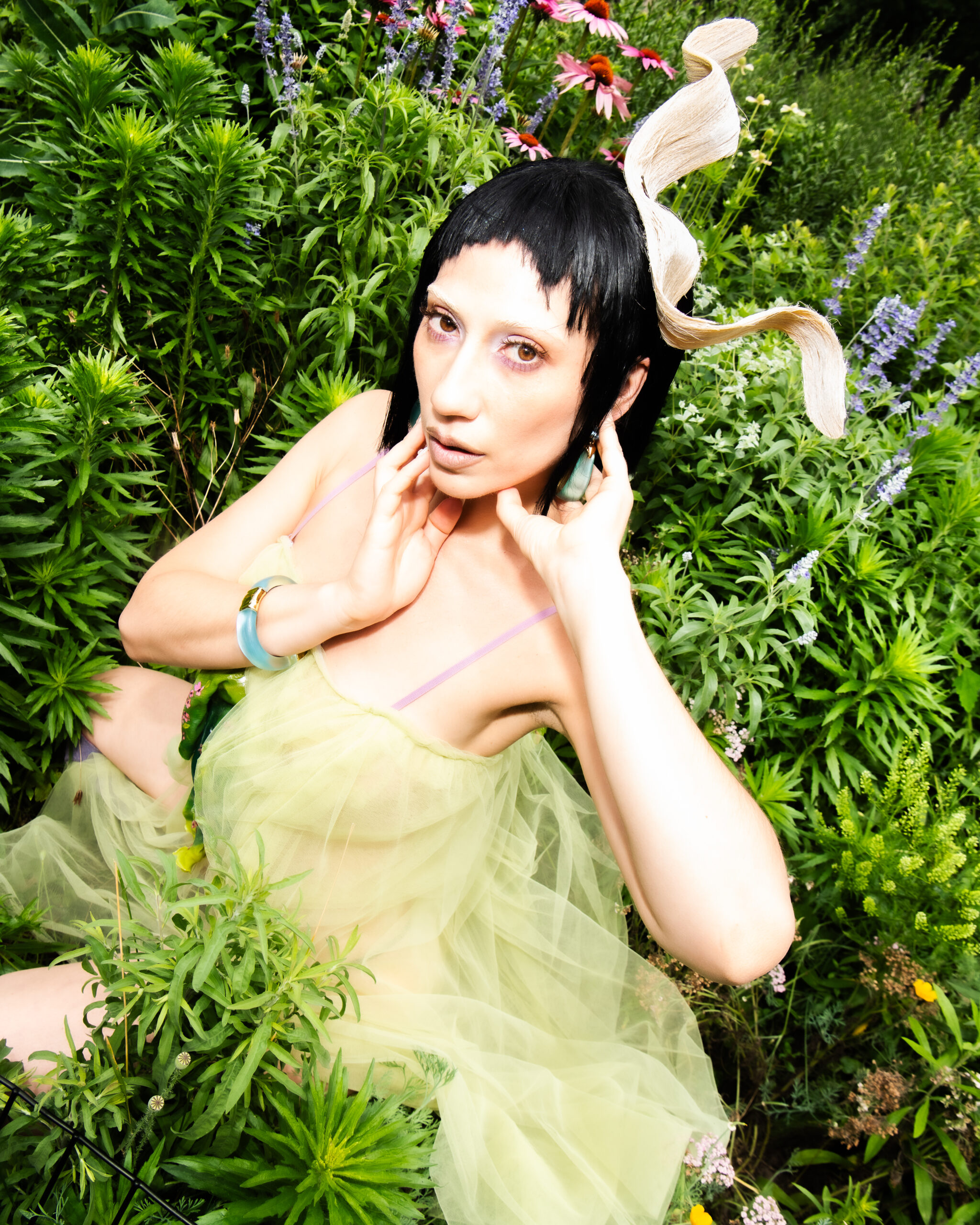
Branden: Let’s start with a fun question. Today is VMA day.
Tei Shi: Oh my god, I didn’t know that! Who watches them live anymore?
Branden: Sabrina Carpenter is performing. Mariah is performing. I’m wondering if you, as someone who also grew up on MTV, do you have any memorable VMA performances, ones that stick out to you?
Tei Shi: Yeah, Brittany with the cobra. That was huge! The Brittany and Madonna makeout, with Christina. That makeout is burned into my brain. I’m not a Swifty but I do remember this one performance. I’m pretty sure it was the VMAs (it was the Grammys, but who cares?). It was Miley Cyrus and Taylor Swift singing Taylor Swift’s song ’15,’ it was just the two of them, guitar and vocals. I don’t know if you’ve heard this song.
Branden: (sings) When you’re fifteen and somebody tells you they love you, you’re gonna believe them.
Tei Shi: Yes! Something about it took my breath away. Again, I’m not a fucking Swifty, but I respect there’s songs in her catalog that I’m like, Whoa. I go back to [that performance] it feels powerful to me. Madonna’s Vogue performance.
Branden: What’s the story behind the name of the album?
Tei Shi: The title of the record, Make believe I make believe reflected the magical space of creating this album. I’m in touch with my creativity again after a long time of feeling like I got very far and disconnected from it. This album was very much me feeling back in tune with my imagination. The title resonated with me, this imagination, this power of making believe, this dream within a dream — the vibe that I try to get across in my music. The title feels evocative and I think that is exactly what my music feels like.
Branden: Can you take us through the seven days that you spent creating this record?
Tei Shi: Now that I’m a fully independent artist I was looking for different ways to fund a new album. I found out about this grant and applied for it and received it. [The grant was] from British Columbia, the provincial government in Canada, which is where I grew up, partially in Vancouver. The grant wanted people that were from Canada but had left, to bring them back and to incentivize the recording industry there. So, it was perfect. I [had] an amazing studio all to myself for a week, I [had] my collaborators with me, and 100 percent of our attention [went] into [creating], and we came away with an album.
Noah Beresin was there the whole time, Tommy English came for four or five days. We were waking up in the morning, going into the studio, writing, recording, going to the kitchen, cooking some food, back into the studio, going for a walk in the forest, working until three in the morning, sleeping and waking up and going to sit by the ocean, and then coming back and working. It was a remote, disconnected experience from the rest of the world, where we were working non-stop and I came out of it with this collection of songs.
Branden: Number one, congratulations on getting the grant because they are all very competitive.
Tei Shi: I have to say, I’ve really come to appreciate the fact that there is still a lot of government support for artists in Canada, in a way that I don’t see elsewhere.
Branden: In New York there’s a lot.
Tei Shi: Yes, in New York for sure but I think those are crazy competitive whereas in Canada it’s definitely not as competitive as New York, where all of the top creatives are fighting over them.
Branden: Yeah you know, it’s funny I’ve gotten a lot of those.
Tei Shi: That’s great!
Branden: Last year I got one from the New York State Council on the Arts.
Tei Shi: Oh my god, congratulations that’s incredible!
Branden: I’ve gotten a lot of grants that I’ve applied for, but I’ve been rejected from more. I want to talk, from creative to creative, about rejection and loss. It is so important to reflect on rejection and losing. You really can feel like you have the best idea and articulate it perfectly and feel passionately that it’s something that needs to be shared, and you can still lose. I know you’ve been in the industry for a long time, and you’ve had a lot of different experiences. I would love to talk about the idea of rejection and how you handle it.
Tei Shi: I’ve arrived at a place where I’m way more comfortable with rejection and letting things slide. I’ve always been somewhat good about rejection and I’ve never let it destroy me. But I definitely have [struggled with rejection] for a long time in my career, especially in the beginning.
I internalized it in ways that were very [unhealthy] for me. I internalized a lot of the pressures that we all pick up from the culture and the discourse that we end up placing on ourselves. I didn’t make it by this age and therefore I’m a failure. All the big checkmark things are not there and therefore I’m not worth it.
Rejection comes in so many different forms and it’s not always somebody saying no. A lot of the time it’s those shortcomings that we internalize and we put on ourselves because we look around and see a superficial representation of what success is.
I went over a hump that was very difficult when I turned 30. It was peak pandemic, and I had a really big disappointment with a label deal I had signed. I had restarted my [career] and taken a chance on a new label and new management. Then it started falling apart and not panning out the way that I expected and I found myself, again, in this place of being tied to a contract that was a toxic dynamic and space for me. I definitely felt rejected. Being shut down and not allowed to release new things and being put on the shelf. That kind of rejection was like little paper cuts every day for years.
Branden: It’s so easy to take it personally because it is personal, your art, that’s you.
Tei Shi: Yeah, I am protective of my work and I’m very particular about it, but I am a flexible person. So when I found myself in a place where I was not allowed to release music … . the years are going by, I haven’t been able to keep up momentum. Nobody wants to book me for shows or festivals because there’s no new music. The press doesn’t have anything to talk to me about because there’s nothing on the horizon, and I was watching my career and my life dwindle. Most of us who are creatives place so much of our value in our work and our work is our life. Over the years, definitely that chipped away at me, got me in a pretty bad place which took me a couple of years to work my way out of and now my full independence is me on the other side of that.
Branden: I do feel like the best music out right now is the independent stuff. Like yours. Is being independent like a choice for you?
Tei Shi: I started out completely independently during the last few years of the blog era in New York. Everything was DIY, working with friends, playing all these shitty underground venues. There was still this spirit of real independent music and this do-it-yourself way of being, and that was my inception. That is my essence. Then I got swept up into what became many years of navigating the label system, having a whole team, and people coming and going.
I don’t think I realized how good I had it. I was like, I need to get signed; that’s gonna make me a full-time artist; that’s gonna solidify and take me to the next level. One experience after another of that not being the case, I really started to realize how lucky I had been and how empowered I had been when I was completely in control. I was just so unaware of it then. Once I was able to get myself out of that last deal, I told myself that I know I can do this independently. I understand the business so much more now.
I really do want to show to myself what I could do without a label backing me, without an AR, without all of these things that we are led to believe that we need in order to be a legit artist. So yeah, [being independent] is very much a choice.
Branden: What’s been the reaction to the new album since it’s been out?
Tei Shi: It’s been really positive. My friends and collaborators all had such meaningful things to say. I feel very embraced by the reaction so far. The little things I have seen on the press side have been really thoughtful, nice things are being said. I feel good.
Branden: Let’s go through just some some standout tracks, shall we?
Tei Shi: Let’s do it.
Branden: So, Montón, is that how you pronounce it?
Tei Shi: Yep, that was perfect.
Branden: What’s the translation?
Tei Shi: Oh, it ‘s like, a bunch. Me gusta un montón.
Branden: It’s such a great representation of authentic music. I hear a great artist who is pulling all of her devices out and using them. That is such a great song. Brilliant, brilliant record!
Tei Shi: This album has some tracks that are like Montón that are really sweet and they allow me to be very playful. I want to dance and I want to move, the more light and positive side of me.
Branden: Some of it’s very positive but some of it’s kind of cunty if you will.
Tei Shi: Totally, totally, totally, yeah.
Branden: I love the line on ‘Drop Dead’ when you say, “most people have no imagination, you’re just a follower looking for your cult.”
I hear an artist who can critique but also has no problem whatsoever with being critiqued. The songwriting is not trying to say you have all of the answers. It’s vulnerable. It’s refreshing but also, it’s a bit nostalgic. I see it in a lot of the songs, especially in ‘Anything’ and ‘Drop Dead.’ I think ‘Iris’ is another one, the songwriting is really brilliant.
Tei Shi: Thank you.
Branden: You’re welcome. A lot of the times when I hear a new record, I write down a lot of the artists that I hear. I’ll share some with you.
Tei Shi: Yes please, I’m so fascinated
Branden: I wrote Fiona Apple. Vanessa Carlton. I wrote Nora Jones.
Tei Shi: I love folk music. I love singer-songwriter, whatever you want to call it. Joni Mitchell, Sarah McLachlan. James Taylor. That was actually a lot of what I was listening to the week of writing this record.
Branden: What are some of your favorite songs on the album?
Tei Shi: ‘Montón’, and ‘Drop Dead’ are such fun ones. If I put it on, if I start performing it, people are gonna get excited because it’s like, ooh, what’s this? [Both songs have] that little candy right from the top that you’re like, this is gonna be good.
Branden: You’ve been making music for a long time. Since 2013, was that your first release?
Tei Shi: Yeah, November 2013.
Branden: You’ve accomplished a lot, you’ve made some great connections. But I have to ask, do you feel as successful as you should be, as you desire?
Tei Shi: No, I definitely don’t. I had to tweak and reprogram myself during the pandemic. I turned 30 during that time. I realized that I had to reframe success to myself. I feel very thankful, very secure in myself, and everything that comes additional from here is a bonus. I’m gonna feel good, and I’m gonna allow myself to be proud of myself and satisfied with what I have achieved.
I feel at peace with where I’m at but there is a part of me that’s like this is still the beginning.
My ambitions have grown so much since I first started. I’m in a place where I have a much more clear idea of the level of success or notoriety that I would like. There’s an unrest within me where I still feel like I have not even really scratched the surface of what I know I can do and what I want to do, but I’m also not letting that make me feel like I’ve failed.
It’s a daily check-in with myself of like, hey, look at all of the positives, of all the amazing things that you have accomplished and feeling real pride in the small things. But still a real hunger for world domination.
Branden: Do you have any fears as a creative person in this present-day climate?
Tei Shi: I do, yes of course. Daily anxiety, for sure. The uncertainty. The doubts. The thoughts creeping in, well you’ve been doing this for how long? And it’s still a struggle for you? Those doubts, that struggle, the uncertainty is definitely there. My source of power is my creativity. So, if I can tap into the best of my creativity and create music and keep putting it out there, I know that things are gonna continue, it’s not gonna get worse than it is now. The most important thing that I have, and that I need to protect, is my creativity.
I have the goods, and thank God I have the goods. [Knowing that] I have the goods is what calms me down.

Dress, caroline Zimbalist. Jewelry, Alexis Bittar. Boots, Stella Xingyi.
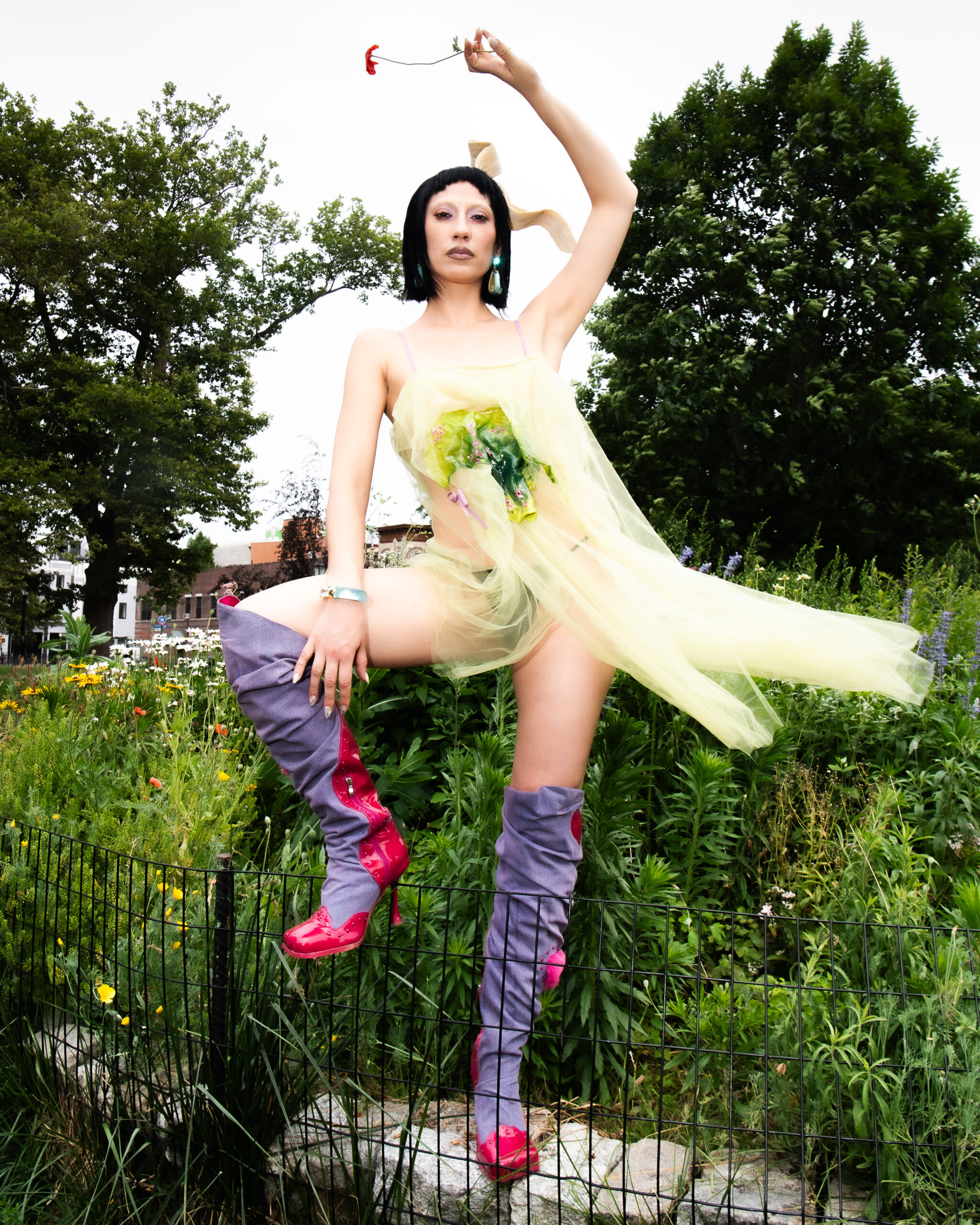
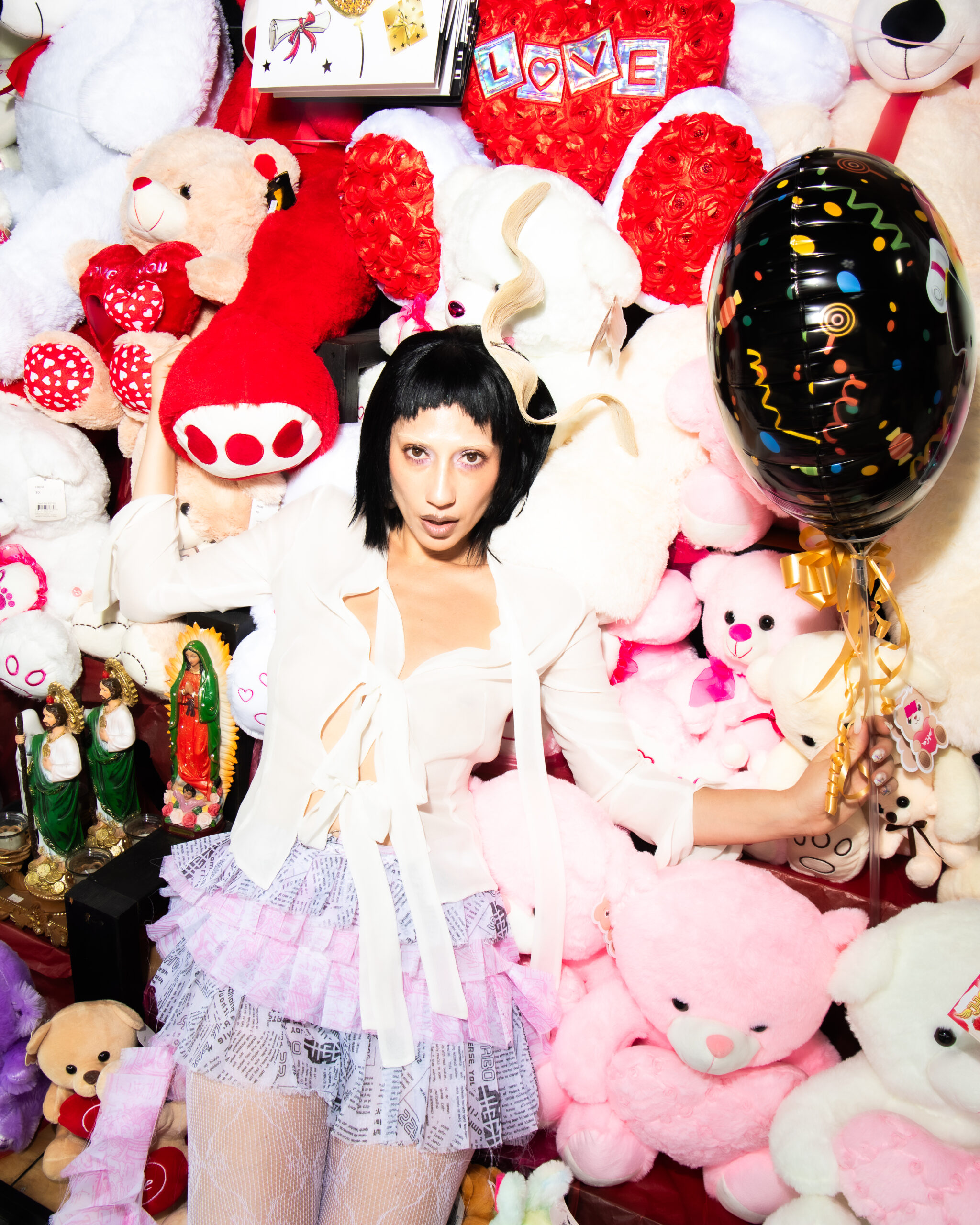
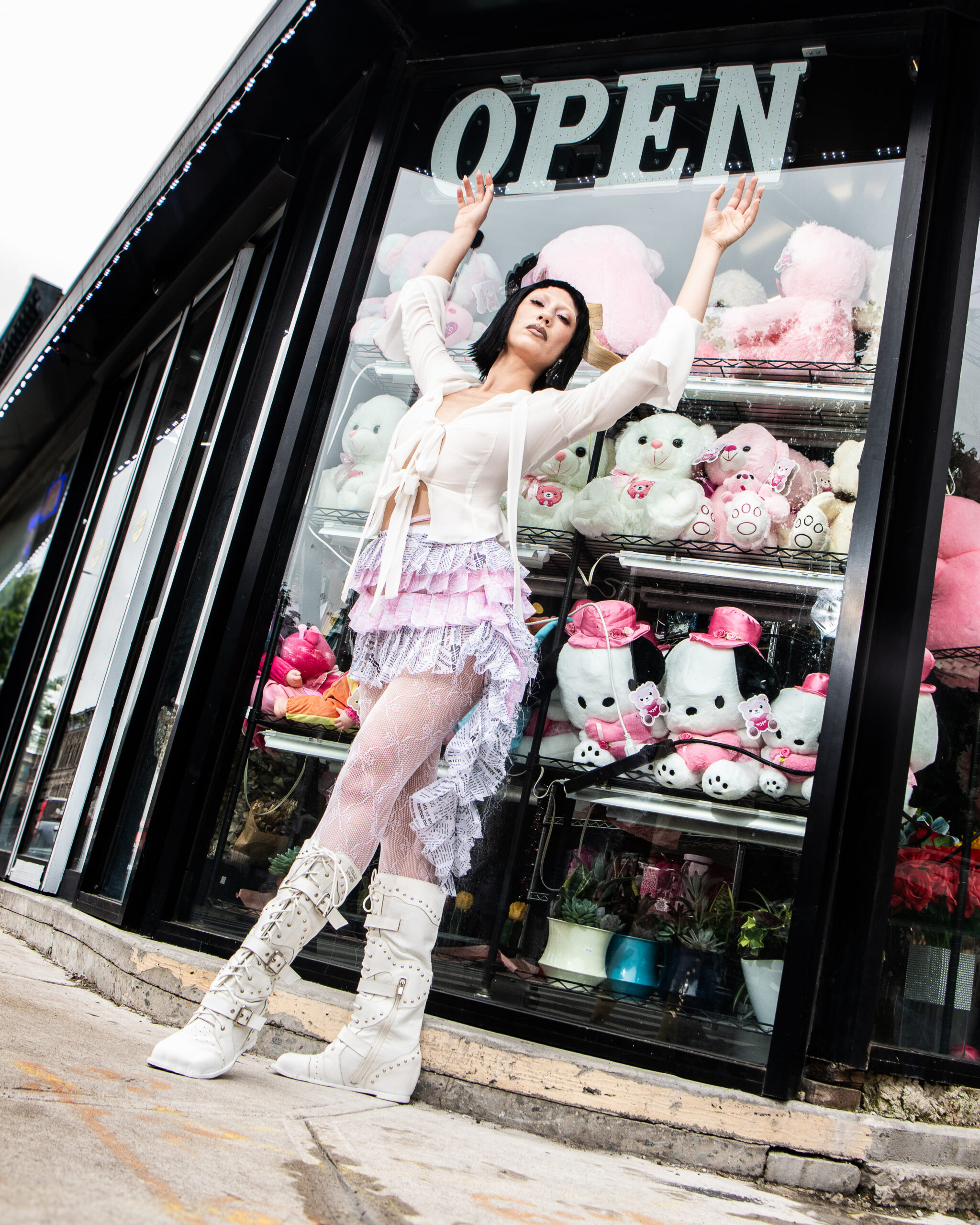
Top, Seline Meisler. Skirt, Hestaverse. Boots, Stella Xingyi.
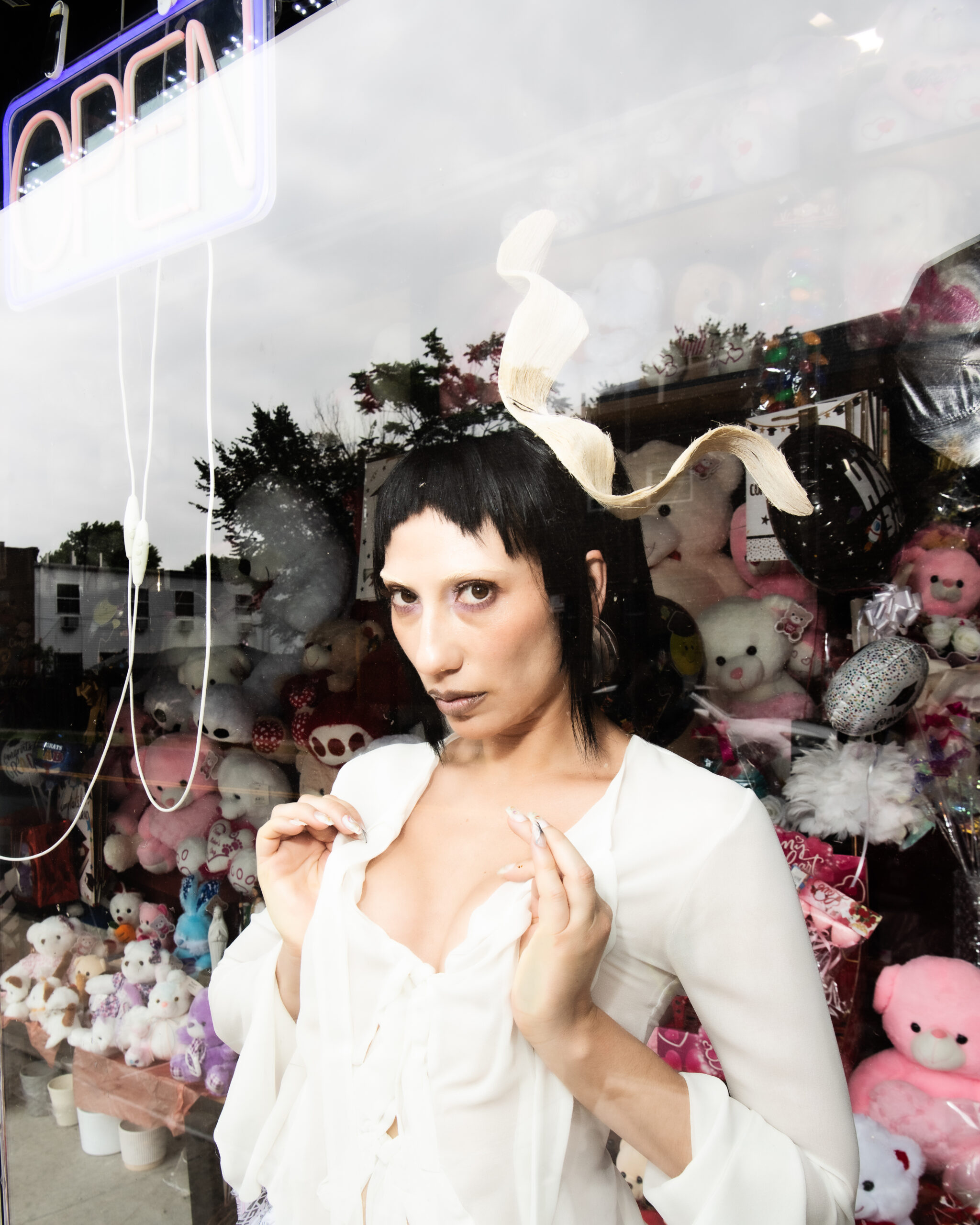
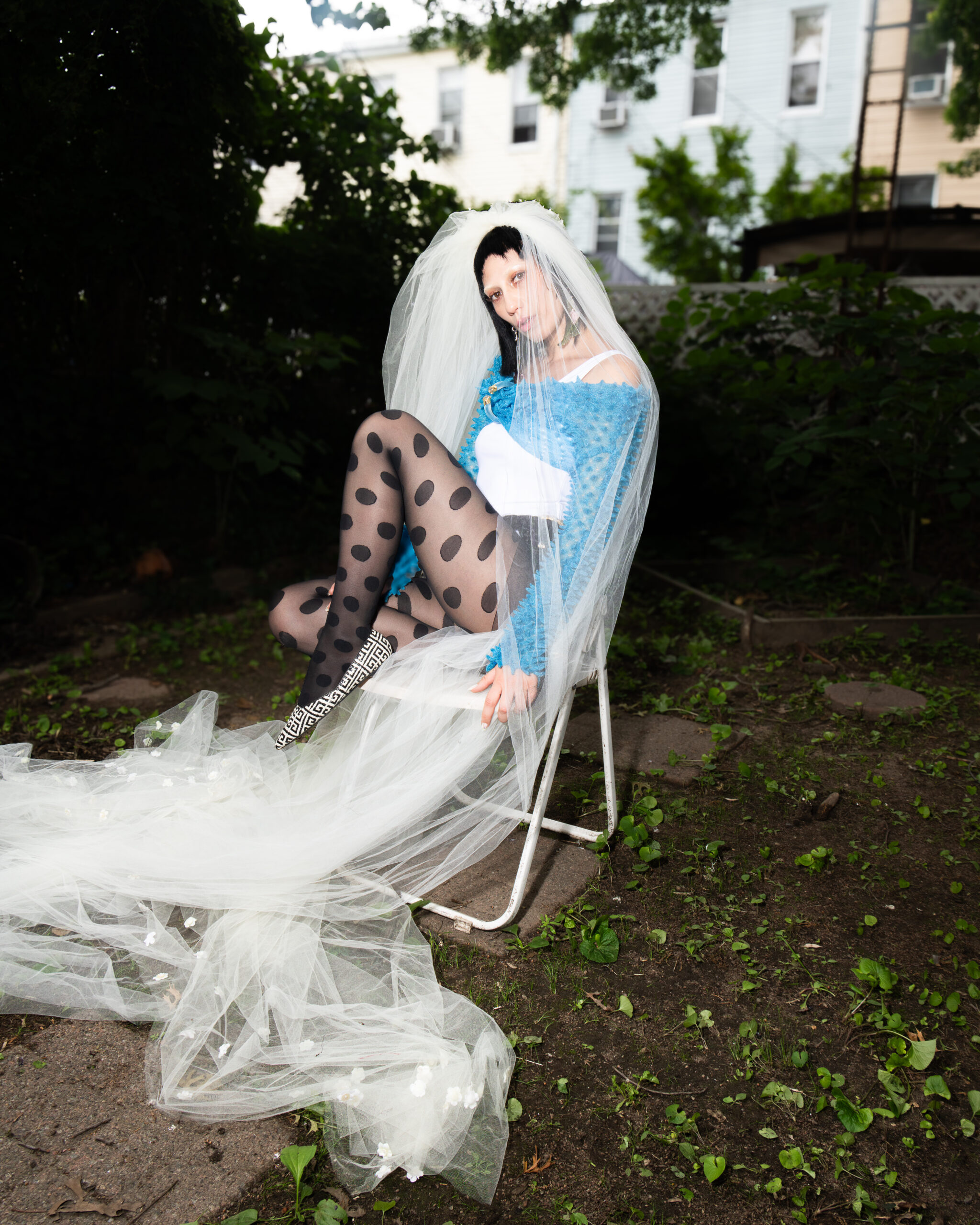
Earrings, caroline Zimbalist. Top, Chetlo. Bodysuit, ASTA Resort. Shoes, Givenchy. Veil, Vintage.
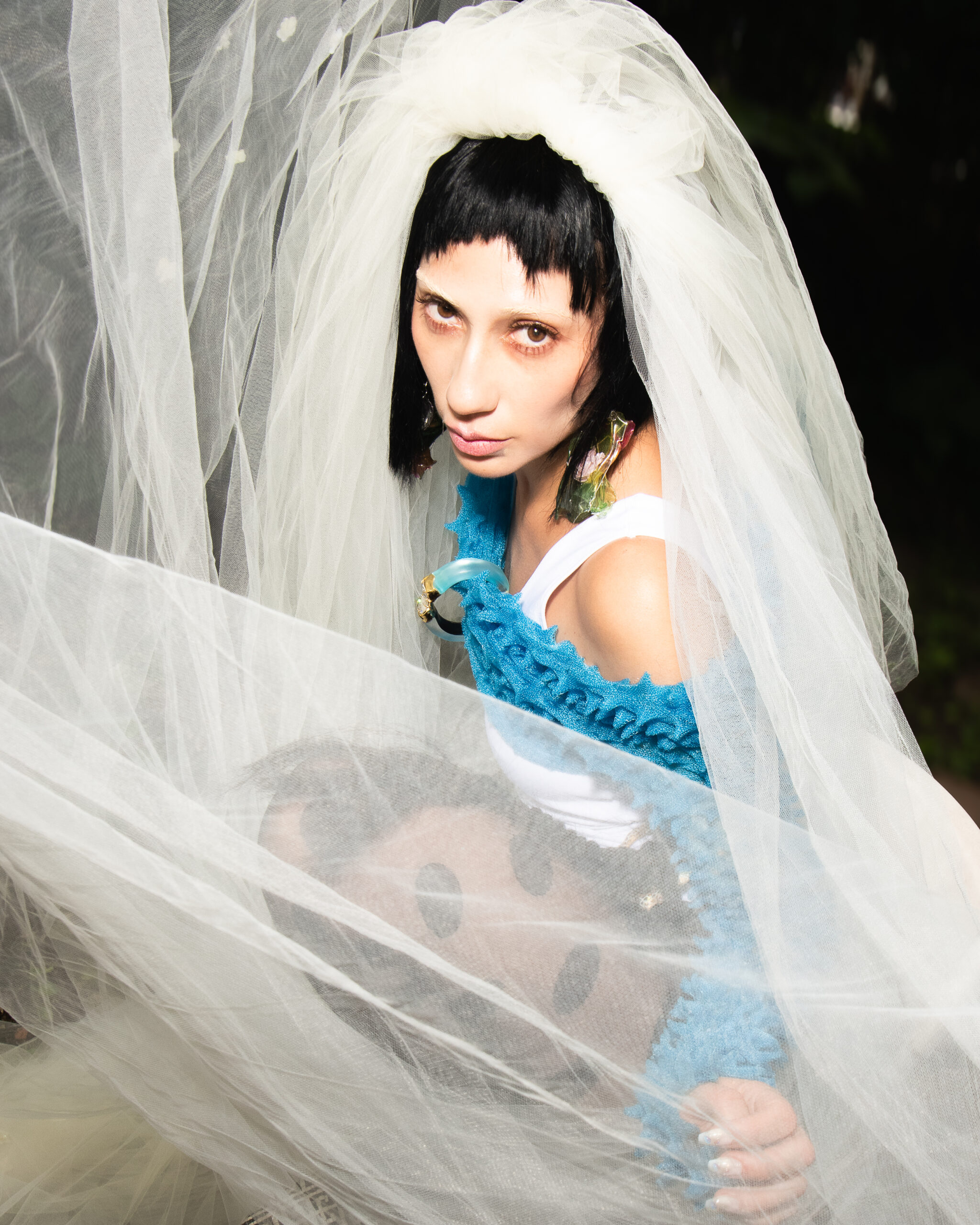
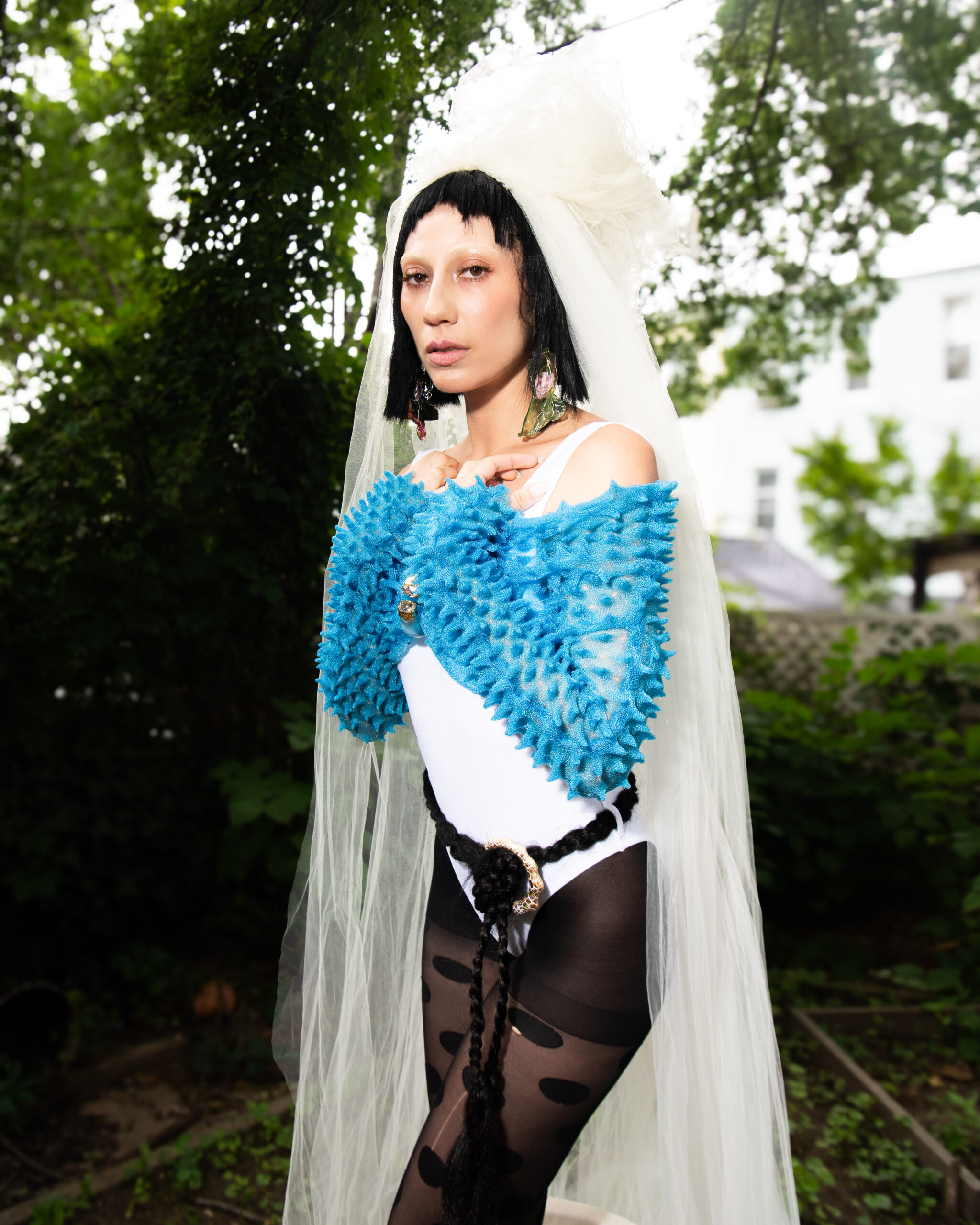
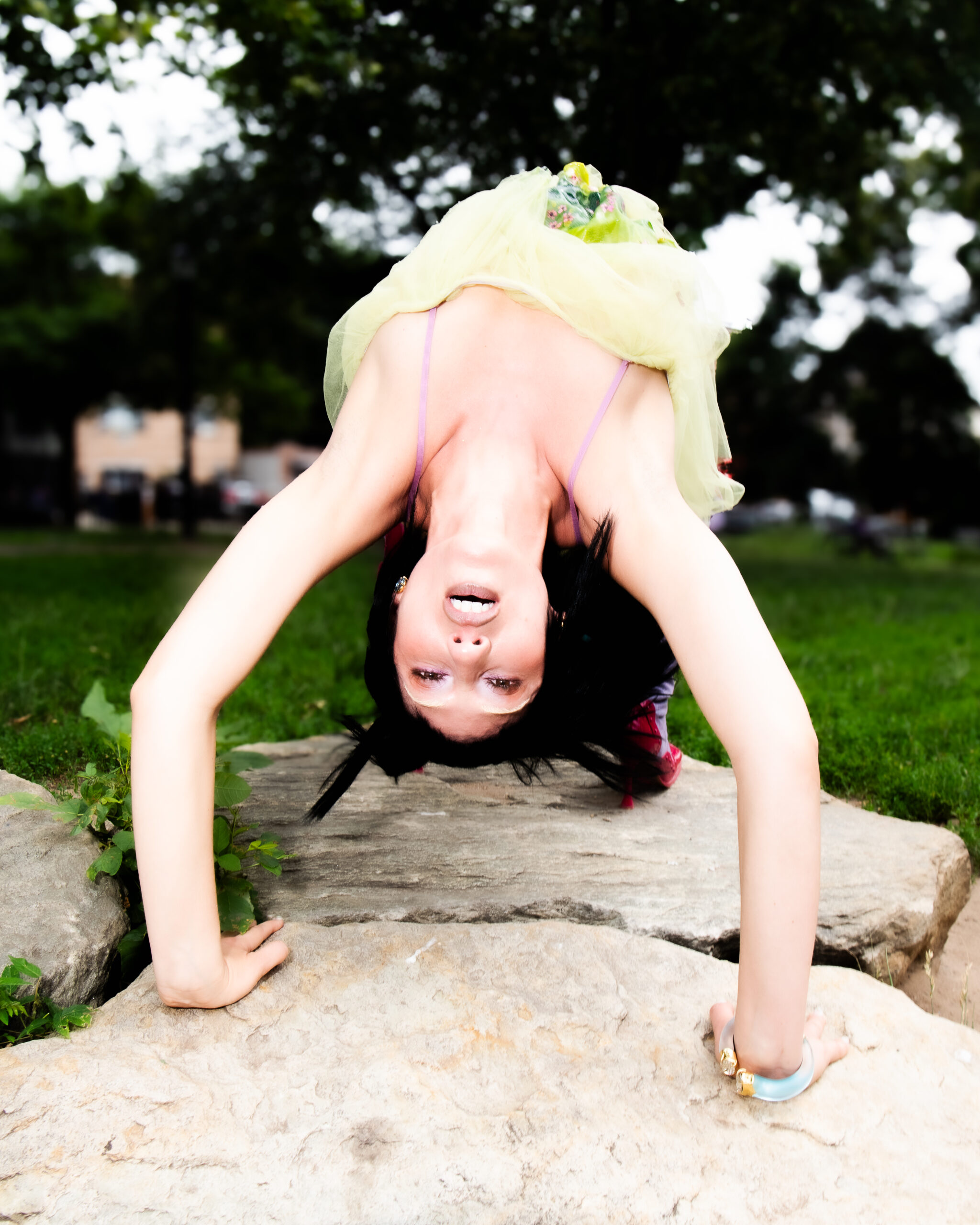
www.ladygunn.com (Article Sourced Website)
#Tei #Shi #Embraces #Creative #Freedom #Daring #Album
